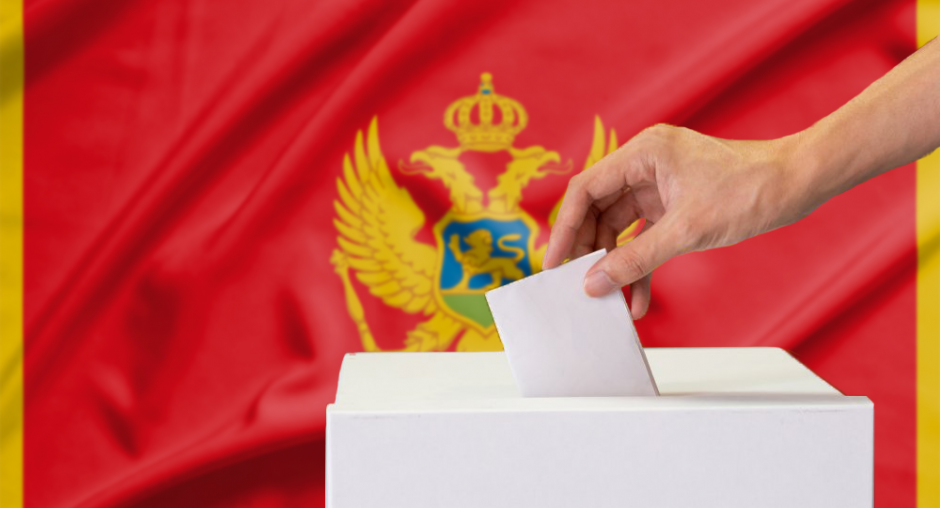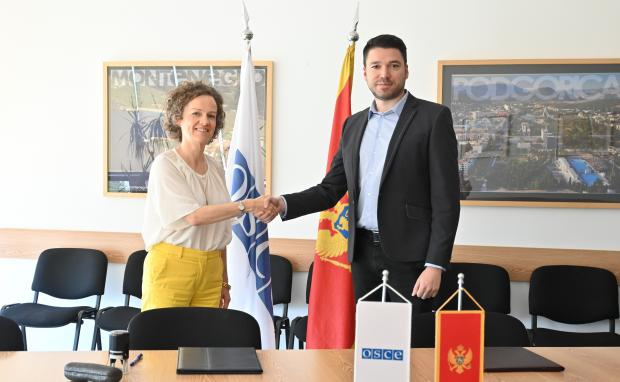OSCE Mission’s ongoing support to improve election management in Montenegro
Improved administration, voter education and accessibility are goals on which the OSCE Mission to Montenegro works alongside the State Election Commission (SEC) and municipal electoral commissions (MECs) to ensure election processes are aligned with OSCE commitments and principles.
A driving part of the joint efforts are the recommendations made by the OSCE Office for Democratic Institutions and Human Rights (ODIHR). ODIHR, in observing national elections in Montenegro since 1998, has made a series of recommendations on how to improve election processes. Supporting the SEC to address ODIHR’s recommendations remains central to the assistance the Mission provides to election management bodies.
The success of any election relies on people understanding and believing in the process. In line with ODIHR’s recommendation to increase transparency and public confidence in Montenegro’s election process, the Mission supported the SEC in livestreaming its meetings. The SEC amended its rules of procedure to allow media access, while the Mission supported this reform through the procurement of cameras and equipment. Viewing these meetings allows voters to see how the commission makes decisions on organizing elections.
The SEC also took steps ahead of the presidential elections in 2023 to raise voter awareness and improve the skills of polling station staff. With the Mission’s support, a ten-day national voter education campaign and a training session for polling station staff on best practices were carried out. An electoral technical assistance officer hired by the Mission helped to prepare a training plan for polling staff and identify a set of international good practices on verifying voters’ signatures.
Improving accessibility for voters with disabilities is another ODIHR’s recommendation. The SEC and the Mission worked in close consultation with two national NGOs — the Association of Youth with Disabilities and the Union of the Blind — to update secondary legislation that introduced braille ballot papers and voter information material and drafted instructions on ensuing that polling stations were accessible. These efforts were complemented by workshops organized by the Mission for the MECs on identifying and removing barriers for disabled voters. A campaign was also launched by the Mission to raise awareness among people with disabilities about their right to vote.
Improving gender equality in election bodies has also been a focus of the SEC and the Mission. In co-operation with ODIHR, the first phase of the SEC’s gender audit was carried out, which will result in recommendations for achieving a gender-balanced approach to policies and acts within the SEC and MECs.
The Mission also assists the SEC and MEC in sharing knowledge. By working in close co-operation with the SEC’s President, Nikola Mugoša, and his team, joint meetings are facilitated between the SEC and MEC designed to support MECs in their election preparation, addressing administrative concerns, and ensuring accessibility of polling stations.
Recognizing the value in learning from others, the Mission organized a series of election observation visits for SEC members to learn new approaches to election administration. They observed elections in Croatia (2019), Slovenia (2019), Sweden (2022), the Netherlands (2023), and the United Kingdom (2023).
Tracking progress on election management has been crucial to understanding what is working and what needs further improvement. Over the past three years, a Mission commissioned annual survey on public confidence in elections and election bodies shows increases in public confidence, although more needs to be done.
The value of the co-operation was best expressed by President Mugoša when he presented the results of the June parliamentary elections to the newly elected members of parliament: “I want to thank the OSCE Mission in Montenegro, which continuously provides assistance and support to the State Election Commission, ultimately contributing to the additional improvement of its work.”
A final ODIHR report on the 2023 parliament elections showed efficient management of election administration and technical preparations, as well as enhanced transparency of SEC meetings at a national level. MECs also demonstrated generally efficient execution of their duties.
ODIHR’s report also pointed out, however, a lack of transparency at the municipal level and the limited and late scope of SEC voter education activities. It identified gaps in how local-level commissions observed accessibility criteria for people with disabilities, particularly on election day. Local organizations were also cited as reporting low participation of persons with disabilities in the election administration process.
Change is always a process. The SEC and MECs have taken important steps to make elections more accessible. They will continue to work with the Mission to address ODIHR’s findings and further improve election management. The Mission will continue supporting implementation of legislative reforms, polling station staff training courses and work on achieving greater political participation of people with disabilities. The Mission remains committed to strengthening capacities of election bodies to administer elections in line with OSCE commitments and principles. It will support the SEC in amending its secondary legislation in case laws governing elections are amended.


